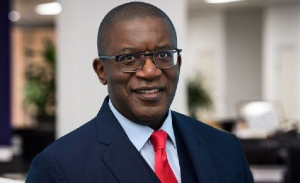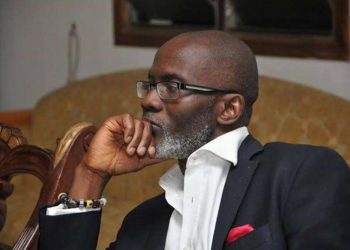For years, Kevin Okyere, founder of Springfield Exploration and Production (SEP), has been known in private circles for boasting about the extent of his influence across Ghana’s political spectrum. Today, that assertion appears less like empty bravado and more like a defining feature of the country’s troubled upstream petroleum governance.
Despite persistent expert consensus that Springfield’s highly-publicised oil discovery lacks the commercial viability to attract independent investment or development, the Government of Ghana is moving forward with a process that could see the state take ownership of the company’s interest in the West Cape Three Points Block 2 (WCTP2) at a significant financial expense. The move occurs at a time when public finances are stretched, upstream output is declining, and trust in regulatory institutions is fragile.
A Pattern of Political Protection
The Herald newspaper has, for years, been one of the few media outlets consistently interrogating Springfield’s claims, drawing attention to irregularities in its technical submissions, regulatory compliance, and public pronouncements. Yet, even in the face of these allegations, the company continues to receive political backing that has cost the state billions of cedis.
This support cuts across partisan lines. It was not only the current administration led by John Dramani Mahama that extended an extraordinary degree of institutional accommodation to Springfield; the previous regime led by Nana Akufo-Addo set the stage by siding with the company in a high-stakes arbitration process, ultimately losing the case and exposing Ghana to significant liabilities. This bipartisan willingness to shield Springfield has raised questions about where the company’s influence begins and ends, and what interest overrides those of the Ghanaian public.
Regulators Reduced to Spectators
Perhaps the most troubling aspect of Springfield’s trajectory has been the weakening of the very state institutions mandated to provide oversight.
Following the arbitration outcome, Springfield was instructed to re-enter its well to complete an appraisal program. This exercise should have been subject to intensive supervision by the Petroleum Commission, led by Emefa Hardcastle. Instead, the Commission was reduced to a passive observer deprived of daily operational reports and forced to chase the company through multiple letters for only partial data submissions. What should have been a scientific, transparent evaluation turned into a process clouded by opacity.
At the same time, the Ghana National Petroleum Corporation (GNPC), and specifically its upstream subsidiary, Explorco, was accused of “tele-guiding” Springfield through the appraisal. Senior GNPC officials, including individuals now in top leadership positions, reportedly played an active role in steering the company’s technical decisions. This unusual alignment between regulator, state operator, and private company further blurred the boundaries of good governance.
A Prearranged Outcome?
The Mahama government’s latest press release, which frames its planned takeover of Springfield’s assets as part of a national strategy to safeguard petroleum resources, may appear procedurally correct. Independent technical and transactional advisors are being procured, due diligence is being promised, and the state’s interest is being emphasized.
A statement signed by Richmond Rockson, Spokesperson and Head of Communication at the Ministry of Energy, has disclosed that the Government of Ghana is considering a state-led takeover of Springfield Exploration and Production Limited’s (SEP) stake in the West Cape Three Points Block 2 (WCTP2) as part of efforts to safeguard declining petroleum assets and boost national oil production.
It said GNPC and its upstream subsidiary, GNPC Explorco, are in “constructive discussions” with SEP regarding a takeover. The move forms part of the government’s broader strategy to optimize upstream output and prevent valuable resources from remaining idle due to “prolonged commercial or operational bottlenecks.”
To guide the process, the Petroleum Commission and GNPC are procuring an independent Technical Consultant and Transactional Advisor. Their work will include a full technical assessment of the block, a cost audit of past expenditures, financial due diligence, and an independent valuation of SEP’s interest to determine its fair value.
“Government considers it urgent to advance the development of the WCTP2 resource base,” the statement noted, citing the country’s declining crude production and global uncertainties within the energy transition. Officials believe timely intervention will prevent further delays, unlock economic value, sustain upstream revenues, and strengthen Ghana’s energy security.
The Ministry’s statement dated Wednesday, 19th November 2025, added that any future development of the block could involve partnerships with technically experienced deep-water operators to accelerate output.
Government also reiterated its commitment to local content, saying the intervention aligns with national policy objectives to build a “competitive, resilient, and locally empowered oil and gas sector.”
The statement stressed that the ongoing process does not interfere with any investigations involving SEP or its affiliates, adding that due process and institutional independence remain fully respected.
Yet behind these formalities lies growing speculation. Sources familiar with the matter believe the outcome may already be predetermined: that the government will buy Springfield’s stake regardless of the asset’s disputed commercial viability. The alleged motivation circulating in industry circles is that the founder, Kevin Okyere, needs upwards of $200 million to settle foreign debts that have led to his brief detention in Dubai in connection with a US$94 million fraud case filed by Switzerland-based Petraco Oil Company SA. Whether factual or not, the very persistence of these rumours, including the name of a certain Kwame Addo, a businessman whose interest is being furthered in these transactions, underscores a troubling question: Why is the state moving with such urgency to rescue a private company whose financial and technical representations have been repeatedly challenged?
The Cost of Influence
If the state proceeds to acquire Springfield’s interest in WCTP2, the financial burden will ultimately fall on taxpayers. The oil sector, already on a downward spiral due to operational declines and policy missteps, can ill afford another politically engineered obligation. Diverting scarce national resources to validate disputed assets risks weakening an industry that should instead be guided by competence, transparency, and market discipline.
Moreover, the perception that one chameleon businessman can command political favour across successive regimes undermines public trust in national institutions. It reinforces the belief that influence, not evidence, determines the fate of Ghana’s natural resources.
Media Accountability in Difficult Terrain
In a media environment where many outlets have been reluctant to scrutinize Springfield’s claims, The Herald has been a consistent outlier. Its reporting has not only exposed discrepancies in Springfield’s narrative but has also defended the public interest even at the cost of prolonged legal battles. This determination stands as a reminder that democratic oversight often depends not on institutions, but on individuals and organisations willing to withstand pressure.
The Herald’s position is grounded in principle: indigenous participation in Ghana’s petroleum sector is essential, but only when companies demonstrate credibility, operational competence, and respect for the law. Local content does not mean political patronage. It means empowering businesses that can deliver real value, not burdening the nation with liabilities disguised as nationalistic gestures.
A Moment of Reckoning
As the Mahama government proceeds with its “independent review” of WCTP2, the key question remains: will this be a genuine evaluation of value, or a procedural justification for an already decided outcome?
Whatever the answer, the saga of Springfield and Kevin Okyere highlights a deeper governance challenge. When individual influence supersedes institutional authority, the state becomes vulnerable, not only to financial losses but also to the erosion of public confidence.
Ghana’s petroleum future depends on reversing this trend. It requires strong institutions, transparent decisions, and a commitment to separating business interests from political and traditional authority protection. Anything less risks turning the country’s most valuable natural endowment into a tool for private rescue rather than national development.
Source: TheHeraldghana.com










Discussion about this post